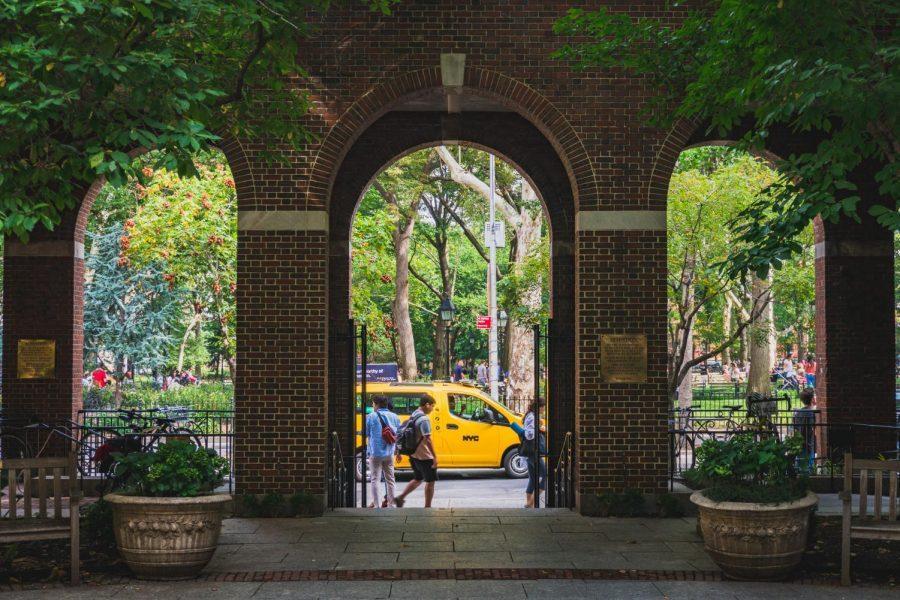Brennan Center Sues U.S. Department of Justice
Courtyard of the Brennan Center at NYU Law
August 26, 2018
NYU School of Law’s Brennan Center for Justice is taking on the United States Department of Justice in a lawsuit filed earlier this month. The center alleges that the DOJ failed to produce many of the documents concerning voter registration that it had requested over a year ago under the Freedom of Information Act.
This act gives the public the right to request access to records from any federal agency, although there is no set time frame within which an agency must respond. The Brennan Center’s request was made in response to a letter sent by the DOJ to 44 states asking for information on how they are complying with federal laws pertaining to voter registration list maintenance.
Austin Evers, executive director of non-partisan government watchdog American Oversight, which is serving as co-counsel in the lawsuit, said the letter had greater significance in the context of the Trump administration’s fight against alleged voter fraud.
“Especially in the wake of the disillusion of the president’s bogus voter fraud commission, the actions by the DOJ stand as the administration’s primary tool for exploring and potentially clamping down on what they view as voter fraud,” Evers told WSN.
The FOIA request was filed, explained Jonathan Brater, counsel in the Brennan Center’s Democracy Program, because of the center’s concerns over voter purging, or the process of removing voters from voter registration lists.
“The concern is that this is a prelude to some sort of enforcement activity from the Department of Justice [such as] some sort of investigation, series of lawsuits or other legal action that would pressure states into engaging in voter purges that would then cause voter suppression if you remove people who are eligible to vote,” Brater said.
Brater said that voter purging is not a problem in and of itself but becomes one when done illegally. On the rise, voter purging can result in eligible voters being taken off of registration lists, even if the purge is eventually found illegal.
“What we’ve seen in many instances is that public knowledge of a voter purge, and then the lawsuit that results in it, only happens [sic] after the fact, and oftentimes only after the election occurs,” Brater said.
The center sought to receive two types of documents concerning the DOJ’s letter: documents received by the DOJ in response to the letter and documents which include communications about the letter.
The DOJ denied the Brennan Center’s first request, citing exemption 7A of the FOIA, which allows federal agencies to deny requests if supplying the requested information could interfere with law enforcement proceedings. The Justice Department did, however, respond to the Brennan Center’s second request, producing 407 pages of communication about the letter, although certain information was redacted or withheld from those pages, allegedly pursuant to other FOIA exemptions.
Of the 407 pages, all but three had been produced in a prior FOIA request. The Brennan Center called this “plainly inadequate” in May appeal.
“An agency will use a very blunt instrument like an exemption 7[A] redaction to block access,” Evers said. “But, if you go to court, it’s often possible to find that there are categories of information that should be available to the public and that can be released without interfering with law enforcement activities.”
It was this lack of direct response that caused the Brennan Center to sue. If the Brennan Center wins the lawsuit, information currently withheld per the FOIA exemptions would be released, giving the public insight into the DOJ’s motivation and plans concerning voter regulation.
“Accountability does not happen by itself,” Evers said. “It takes groups like the Brennan Center to step up, ask the questions and enforce their rights. That’s the way the public learns this important information.”
A version of this article appeared in the Sunday, Aug. 26 print edition. Email Victor Porcelli at [email protected].



























































































































































